Dollar To Naira Black Market Exchange Rate Today Today May 11, 2024, Aboki FX.
According to recent dealers in Nigeria’s Abuja Zone 4 market, a dollar was purchased at 1445₦ and sold at 1465₦ today, as against 1430₦ it traded yesterday.
Six9ja News Nigeria has access to the black market naira exchange rate for today, (May 11, 2024)
This online news source has collected the current black market, Bureau de Change (BDC), and Central Bank of Nigeria (CBN) values for the naira in Nigeria.
How Much Is Dollar To Naira Exchange Rate Today?
Six9ja News Nigeria understands that the exchange rate for one dollar to naira at Lagos Parallel Market (Black Market) players buy one dollar at the rate of #1445 and sell at #1465 as of the period or time of the release of this report.
Dollar to Naira Rate for Past 7 Days
| Date | Buy | Sell |
| May 10, 2024 | 1450 | 1430 |
| May 9, 2024 | 1445 | 1425 |
| May 8, 2024 | 1445 | 1425 |
| May 7, 2024 | 1438 | 1405 |
| May 6, 2024 | 1440 | 1420 |
| May 5, 2024 | 1430 | 1410 |
| May 4, 2024 | 1435 | 1415 |
Dollar to Naira is how much,
According to recent dealers in Nigeria’s Abuja Zone 4 market, a dollar was purchased at 1410₦ and sold at 1440₦ today, as against 1580₦ it traded yesterday.
Black Market Exchange rate for Euro to Naira
Furthermore, on the illicit market, the second most traded currency, the euro/naira, was exchanged at 1520 buy and 1560 sell, respectively.
Black Market Exchange rate for Pounds to Naira
It’s interesting to note that the official exchange rate for pounds to naira is 1840, while on the black market, the same unit can be sold for 1860.
Dollar to Naira Today Rate / Exchange Rate of Dollar To Naira in Black Market Today?
| Dollars to Naira (USD to NGN) | Exchange Rate Today |
| Buying Rate | 1445 |
| Selling Rate | 1465 |
Black Market/Aboki Rate Exchange Table Today
The table below lists the black market prices for some common denominations of dollars today. Since the selling rate is ₦895, we simply multiply it by the denomination in dollars for example to convert $5, we multiply it by ₦895.
Dollar To Naira CBN Rate Today
Currency dealers in Abuja Zone 4 market, Nigeria said a dollar was bought at 1445₦ and sold at 1465₦ today, as against 1450₦ it traded yesterday.
Note: Today, March 26, 2024, the Central Bank of Nigeria sells at ₦1200 and buys at ₦1240. This price can be obtained from the publication here www.cbn.gov.ng/rates/ExchRateByCurrency.asp. Over the last week, there has been a reduction in the CBN rate.
Kindly read and understand the accurate rate of dollar to naira today black market and also the exchange rate of dollar to naira in Lagos Nigeria today. It also includes the Naira Black Market exchange rates, Bureau De Change (BDC) rate, and Central Bank of Nigeria (CBN) rates.
Note, Disclaimer: Six9ja platform Nigeria neither determines nor sets exchange rates. The FMDQOTC website is where you can find the official NAFEX rates.
Also read: Dollar To Naira Black Market Rate Today June 2023 (USD to NGN)
Dollar to Naira Exchange Rate at Black Market.
Dollar to Naira rate.
The following is the dollar to naira current black market rate today of Bureau De Change (BDC) operators in Lagos for selling and buying United States Dollars (USD) at the parallel (unofficial) market.
How much is $1 dollar in Naira now?
Black Market Exchange Rates |
Buying Rate |
Selling Rate |
| Dollar to Naira | 1465 | 1445 |
| Pounds to Naira | 1790 | 1765 |
| Euro to Naira | 1540 | 1500 |
| Canadian Dollar to Naira | 1360 | 1320 |
| Rand to Naira | 52 | 43 |
| Dirham to Naira | 0 | 0 |
| Yuan to Naira | 62 | 62 |
| G.Cedi to Nair | 119.19 | 119.19 |
| CFA F. (XOF) To Naira | 0.83 | 0.81 |
| CFA F. (XAF) To Naira | 0.74 | 0.74 |
How much is $5 US in Nigeria?
$5 is 7325Naira
How much is $10 in Nigeria black market?
10$ is 14650 naira
How much is 20 dollars in Nigeria black market today?
20$ is 29300 naira
How much is 30 dollars in Nigeria black market?
30$ is 43950 naira
How much is $40 in Nigeria black market?
40$ is 58600 naira
How much is $100 in the black market?
100$ is 146500 naira
How much is 50dollars in black market today?
50$ is 73250 naira
How much is $60 in Nigeria black market?
60$ is 87900 naira
How much is 80 dollar in Nigeria black market?
80 dollars is 117200 naira
How much is $150 in Nigeria black market?
150 dollars is 219750 naira
How much is 250 dollar in Nigeria black market?
250 dollars is 366250 naira
How much is 300 dollar in Nigeria black market today?
300 dollars is 439500 naira
How much is $400 in Nigeria black market?
400 dollars is 586000 naira
How much is 1000dollars in black market?
1000 dollars is 1465000 naira
How much is $2000 dollars in Nigeria?
2000 dollars is 2930000 naira
How much is 5000 in Nigeria black market?
5000 dollars is 7325000 naira
Factors Influencing Foreign Exchange Rates
Foreign exchange rates play a crucial role in the global economy, impacting trade, investment, and international transactions. Understanding the factors that influence these exchange rates is essential for businesses, investors, and individuals involved in international finance. In this article, we will explore the key factors that drive foreign exchange rates and their implications.
Outline
- Introduction
- Supply and demand in the forex market
- Interest rates and monetary policy
- Inflation and purchasing power parity
- Economic indicators and market sentiment
- Political stability and geopolitical factors
- Current account and balance of payments
- Central bank interventions
- Capital flows and investor sentiment
- Market speculation and sentiment
- The interconnectedness of global markets
- Commodity prices and terms of trade
- Government policies and regulations
- Exchange rate regimes
- Impact on International Trade and Investment
- Conclusion
- FAQs
Factors Influencing Foreign Exchange Rates
1. Introduction
Foreign exchange rates refer to the relative value of one currency compared to another. These rates are determined by a complex interplay of various factors that shape the supply and demand dynamics in the foreign exchange market. Understanding these factors is crucial for predicting and managing exchange rate fluctuations.
2. Supply and demand in the forex market
Foreign exchange rates are primarily influenced by the supply and demand dynamics in the forex market. When the demand for a currency exceeds its supply, its value appreciates, and vice versa. Several factors contribute to the supply and demand of currencies, including economic conditions, interest rates, inflation, and investor sentiment.
3. Interest rates and monetary policy
Interest rates have a significant impact on exchange rates. Central banks use interest rates as a tool to control inflation and stabilize the economy. Higher interest rates attract foreign investors, leading to increased demand for the currency and a stronger exchange rate. Conversely, lower interest rates can discourage foreign investment and weaken the currency.
4. Inflation and purchasing power parity
Inflation refers to the rate at which prices for goods and services rise over time. Countries with low inflation tend to have stronger currencies, as their purchasing power remains relatively stable. The theory of purchasing power parity suggests that exchange rates should adjust to equalize the prices of identical goods in different countries.
5. Economic indicators and market sentiment
Economic indicators, such as GDP growth, employment data, and consumer confidence, provide insights into the overall health of an economy. Positive economic indicators can boost investor confidence and attract foreign investment, leading to a stronger currency. Conversely, negative economic news can result in currency depreciation.
6. Political stability and geopolitical factors
Political stability and geopolitical developments significantly influence foreign exchange rates. Countries with stable governments and sound policies are more likely to attract foreign investment and have stronger currencies. On the other hand, political uncertainty, conflicts, or geopolitical tensions can lead to currency volatility and depreciation.
7. Current account and balance of payments
The current account and balance of payments reflect a country’s trade and financial transactions with the rest of the world. A current account surplus, indicating that a country exports more than it imports can strengthen its currency. Conversely, a current account deficit can weaken the currency.
8. Central bank interventions
Central banks sometimes intervene in the foreign exchange market to stabilize or influence their currency’s value. They may buy or sell currencies to increase or decrease their supply, thereby impacting the exchange rate. Central bank interventions can be driven by various objectives, such as promoting exports, controlling inflation, or managing economic imbalances.
9. Capital flows and investor sentiment
Capital flows, including foreign direct investment, portfolio investment, and speculative capital, can have a significant impact on exchange rates. When investors perceive a country as attractive for investment, they increase their demand for its currency, leading to appreciation. Conversely, capital outflows can weaken a currency.
10. Market speculation and sentiment
Market speculation and sentiment can drive short-term fluctuations in exchange rates. Traders and investors closely monitor market trends, news, and sentiment to make buy or sell decisions. Positive market sentiment can strengthen a currency, while negative sentiment can lead to depreciation.
11. Interconnectedness of global markets
In today’s interconnected world, developments in one market can quickly impact others. Global financial markets are closely intertwined, and events in major economies can have ripple effects on exchange rates. Factors such as interest rate changes, economic crises, or policy shifts in influential countries can affect currencies worldwide.
12. Commodity prices and terms of trade
Countries heavily reliant on commodity exports are vulnerable to fluctuations in commodity prices. Changes in commodity prices, such as oil, metals, or agricultural products, can impact a country’s terms of trade and its currency. Higher commodity prices generally strengthen the currencies of commodity-exporting countries.
13. Government policies and regulations
Government policies and regulations, including trade policies, fiscal policies, and capital controls, can affect exchange rates. For example, protectionist measures or tariffs can impact a country’s trade balance and currency value. Likewise, changes in tax policies or government spending can influence investor sentiment and currency flows.
14. Exchange rate regimes
Different countries adopt various exchange rate regimes, such as fixed, floating, or managed exchange rates. The chosen regime influences the flexibility of the exchange rate and the extent to which it can be influenced by market forces or government interventions.
15. Impact on international trade and investment
Foreign exchange rates have a direct impact on international trade and investment. A stronger domestic currency can make exports more expensive and imports cheaper, potentially affecting a country’s trade balance. Exchange rate fluctuations also impact the profitability of foreign investments and the cost of servicing international debt.
Conclusion
Foreign exchange rates are influenced by a complex interplay of factors, including supply and demand dynamics, interest rates, inflation, economic indicators, political stability, and market sentiment. Understanding these factors is essential for businesses, investors, and individuals involved in international finance. By staying informed and monitoring these influences, stakeholders can make informed decisions to manage exchange rate risks and seize opportunities in the global market.
FAQs
- Q: How often do foreign exchange rates change? A: Foreign exchange rates can change frequently, sometimes even multiple times within a single day. They are influenced by various factors and can be volatile.
- Q: Can governments manipulate exchange rates? A: Governments can intervene in the foreign exchange market to influence their currency’s value, but long-term sustainable changes are challenging to achieve.
- Q: How do exchange rates impact travel expenses? A: Exchange rates determine the cost of converting one currency into another, affecting travel expenses for individuals visiting other countries.
- Q: Are exchange rates the same for all currencies? A: Exchange rates vary for different currency pairs based on their relative value in the forex market. Each currency has its own exchange rate against others.
- Q: Do all countries have their own currency? A: No, some countries share a common currency, such as the Eurozone countries using the euro. Shared currencies eliminate exchange rate fluctuations within the group.
Do you find Six9ja useful? Click here to give us five stars rating!
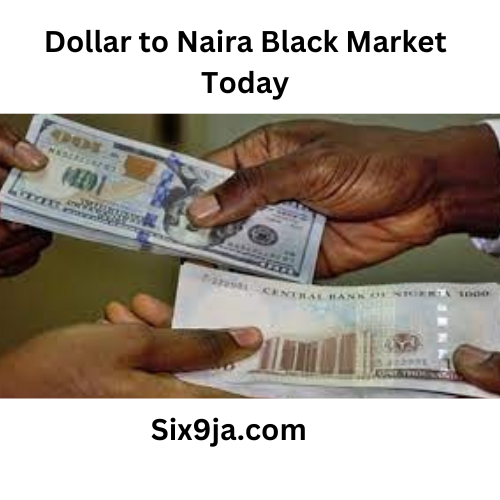









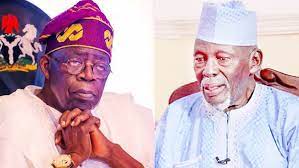

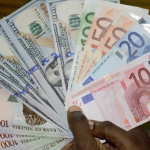
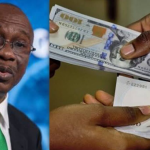
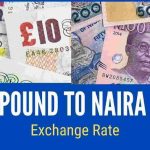
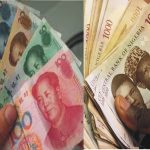
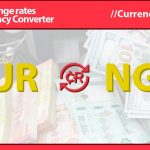
Anonymous
11 months ago
$100 is N76,000.
Anonymous
9 months ago
I I want to send money from my bank I could from access bank why
Emmanuel Obasi
8 months ago
I really need this black market if I will apply to pay on nira thank you
Anonymous
7 months ago
I buy and sell all crypto’s Bitcoin and all gift cards. At very good rates and instant pay out immediately confirmation is done , get your money in a minute